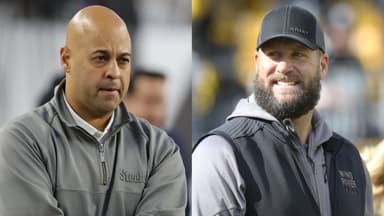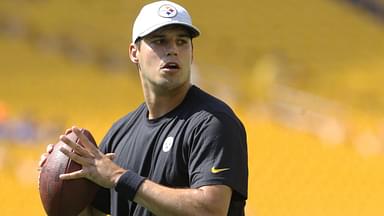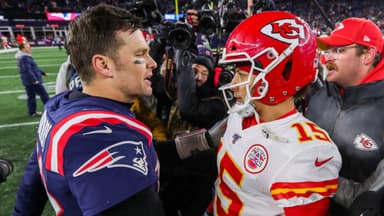Franchise quarterbacks often hold significant sway over team decisions, especially when it comes to signing offensive personnel. And even more so at the quarterback position. These stars typically expect to have a voice in such matters, and they bristle when the front office brings in a potential successor or even a backup without consulting them. All the more when they near the twilight of their careers.
Advertisement
This has played out across history and teams: Brett Favre wasn’t thrilled when the Green Bay Packers drafted Aaron Rodgers in 2005. Years later, Rodgers himself took issue when Green Bay selected Jordan Love in 2020. The Pittsburgh Steelers brought in Mason Rudolph in 2018, and it didn’t please Ben Roethlisberger.
However, Big Ben’s issue wasn’t with Rudolph personally. It’s true that he wasn’t thrilled with the decision. But he also wasn’t threatened by it.
Roethlisberger didn’t view Rudolph — a third-round pick — as a serious challenge to his position. Rather, he saw it as the Steelers taking a low-risk chance on a developmental quarterback for the future.
“I made comments. Why did we draft Mason? It wasn’t a shot at Mason. I didn’t have a problem with Mason. They could’ve drafted Patrick Mahomes. It wasn’t a shot at the person,” said Roethlisberger on his podcast, Footbahlin.
“It was how are we making our team better by drafting a guy in the 3rd round that’s going to be a backup QB? How is that helping the team? The guy may not see the field. Go find a need in the 3rd round. What are you all doing? How is that helping our team win a championship now?” Big Ben added.
That said, the implications of a first-round pick would’ve been entirely different. When a team drafts a quarterback early while already having an established franchise QB, it sends a clear message to the senior pro: It’s time to move on.
Big Ben clearly was not in that situation. However, the Mahomes-Steelers question remains.
Could the Steelers have drafted Mahomes in 2017?
The 2017 NFL Draft wasn’t exactly overflowing with quarterback talent, but among the few available, Mahomes stood out as the crown jewel. Several teams had their eyes on him, including the Denver Broncos, the Arizona Cardinals, and the New York Giants. But it was the Chiefs who ultimately landed the future two-time MVP.
Kansas City selected Mahomes 10th overall. The Steelers, on the other hand, held the 30th pick that year. Originally, Kansas City had the 27th pick, but they knew Mahomes wouldn’t be available by then. So, they made a bold move and traded up.
To secure the 10th pick from the Buffalo Bills, the Chiefs gave up their first- and third-round picks in 2017, along with their first-rounder in 2018. It was a hefty price, but one they were willing to pay for their quarterback of the future.
For the Steelers to make a similar move, they would’ve had to offer even more — likely an additional pick or two — just to leapfrog Kansas City or match their offer. Given the capital required, it’s understandable why Pittsburgh didn’t, or couldn’t, pull the trigger.
Had the Steelers decided to trade up for Mahomes in 2017, they likely would’ve missed out on drafting T.J. Watt, whom they selected 30th overall that year. And looking at their draft strategy around that time, it’s clear that Pittsburgh wasn’t particularly eager to spend a first-round pick on a quarterback.
They took Joshua Dobbs in the fourth round in 2017 and followed that up by selecting Rudolph in the third round of the 2018 draft. At the time, the Steelers seemed to believe Rudolph could eventually take over as the franchise quarterback.
When Roethlisberger retired in 2021, Rudolph had already been with the team for three years, and it appeared to be his opportunity to step up. But that never happened. Instead, the Steelers signed Mitch Trubisky and drafted Kenny Pickett in the first round.
During his six seasons in Pittsburgh, Rudolph played in just 21 games, starting 13 of them. He threw for a little over 3,000 yards with 19 touchdowns and 11 interceptions, posting an 8–4–1 record as a starter.
After a brief stint in Tennessee, he’s now back in Pittsburgh, set to be a backup to Aaron Rodgers in the upcoming season. It seems Rudolph has embraced his role as a veteran backup QB.







